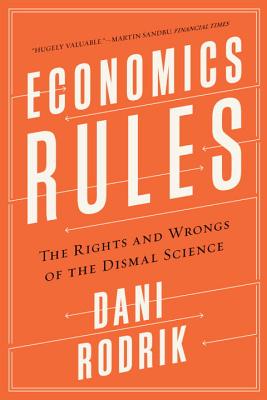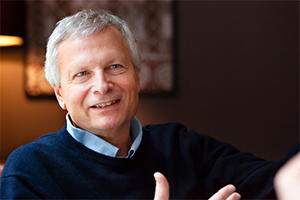

 W. W. Norton & Company
W. W. Norton & Company
Economics Rules: The Rights and Wrongs of the Dismal Science


Key Metrics
- Dani Rodrik
- W. W. Norton & Company
- Paperback
- 9780393353419
- 8 X 5.4 X 0.8 inches
- 0.5 pounds
- Business & Economics > Economics - Theory
- English
 Secure Transaction
Secure TransactionBook Description
In the wake of the financial crisis and the Great Recession, economics seems anything but a science. In this sharp, masterfully argued book, Dani Rodrik, a leading critic from within, takes a close look at economics to examine when it falls short and when it works, to give a surprisingly upbeat account of the discipline.
Drawing on the history of the field and his deep experience as a practitioner, Rodrik argues that economics can be a powerful tool that improves the world--but only when economists abandon universal theories and focus on getting the context right. Economics Rules argues that the discipline's much-derided mathematical models are its true strength. Models are the tools that make economics a science.
Too often, however, economists mistake a model for the model that applies everywhere and at all times. In six chapters that trace his discipline from Adam Smith to present-day work on globalization, Rodrik shows how diverse situations call for different models. Each model tells a partial story about how the world works. These stories offer wide-ranging, and sometimes contradictory, lessons--just as children's fables offer diverse morals.
Whether the question concerns the rise of global inequality, the consequences of free trade, or the value of deficit spending, Rodrik explains how using the right models can deliver valuable new insights about social reality and public policy. Beyond the science, economics requires the craft to apply suitable models to the context.
The 2008 collapse of Lehman Brothers challenged many economists' deepest assumptions about free markets. Rodrik reveals that economists' model toolkit is much richer than these free-market models. With pragmatic model selection, economists can develop successful antipoverty programs in Mexico, growth strategies in Africa, and intelligent remedies for domestic inequality.
At once a forceful critique and defense of the discipline, Economics Rules charts a path toward a more humble but more effective science.
Author Bio
Dani Rodrik is the Ford Foundation Professor of International Political Economy at Harvard's John F. Kennedy School of Government. He rejoined the Kennedy School in July 2015 after two years at the Institute for Advanced Study as the Albert O. Hirschman Professor in the School of Social Science. He is a co-director of the Economics for Inclusive Prosperity (EfIP) network and president of the International Economic Association. He is affiliated with the National Bureau of Economic Research and the Centre for Economic Policy Research (London) among other research organizations.
Professor Rodrik's research focuses on globalization, economic growth and development, and political economy. He is the recipient of numerous awards, including the inaugural Albert O. Hirschman Prize of the Social Science Research Council and the Princess of Asturias Award for Social Sciences. He was included in Prospect magazine's World's Top 50 Thinkers list (2019) and in Politico magazine's 50 list (2017). His work has been profiled in The Harvard Magazine, Finance & Development, Harvard Kennedy School Magazine, The Chronicle of Higher Education, and the New York Times.
Professor Rodrik is the author of Straight Talk on Trade: Ideas for a Sane World Economy (2017). The book was awarded the George S. Eccles Prize for Excellence in Economic Writing by the Columbia Business School in 2019. He is also the author of Economics Rules: The Rights and Wrongs of the Dismal Science (2015) and The Globalization Paradox: Democracy and the Future of the World Economy (2011). His articles have been published in the American Economic Review, Quarterly Journal of Economics, Journal of Political Economy, Economic Journal, Journal of Economic Growth, Journal of International Economics, Journal of Development Economics, and other academic journals.
His previous books include One Economics, Many Recipes: Globalization, Institutions, and Economic Growth (2007), The New Global Economy and Developing Countries: Making Openness Work (1999), and Has Globalization Gone Too Far? (1997). Professor Rodrik's monthly columns on global affairs are published by Project Syndicate.
Professor Rodrik holds a Ph.D. in economics and an MPA from Princeton University, and an A.B. from Harvard College.
Source: Harvard University
Videos
No Videos
Community reviews
Write a ReviewNo Community reviews